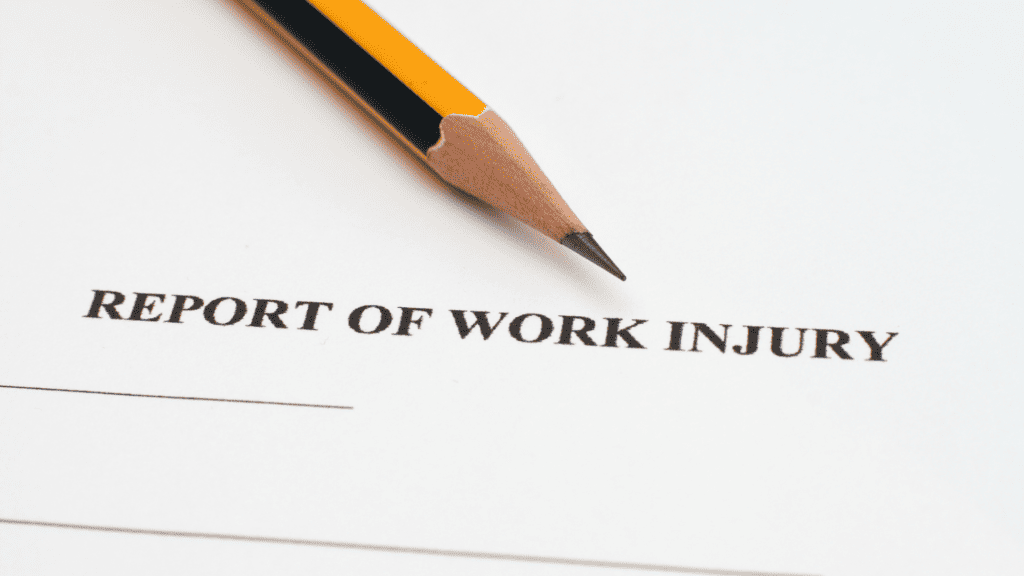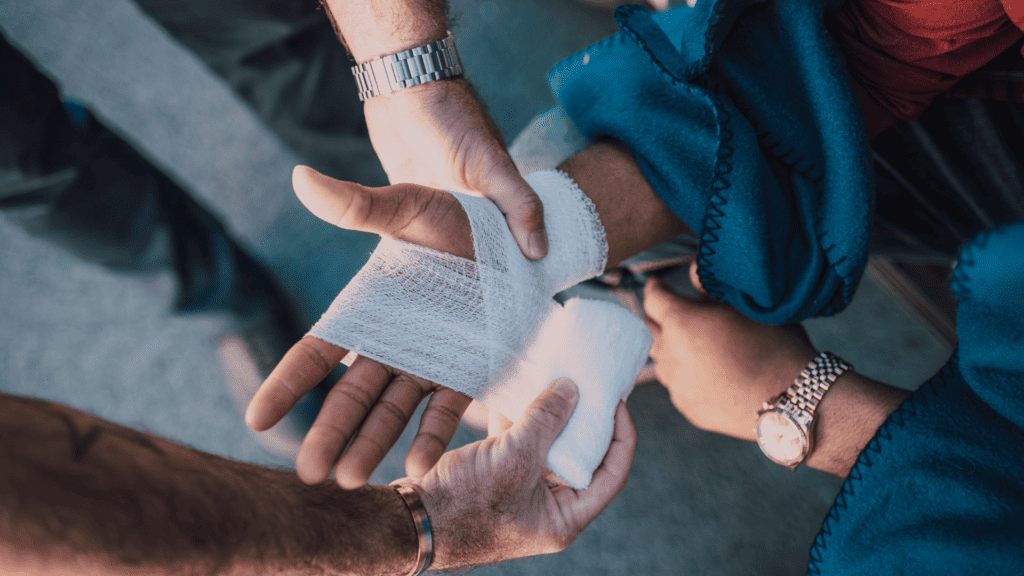Today we’re talking about something super important—what you should and shouldn’t do if you get hurt at work. Did you know that a lot of people get hurt on the job every year? That’s why it’s crucial to know how to report an injury the right way. Stick around, and we’ll walk you through all the steps you need to know!
The Do’s of Reporting a Workplace Injury
Do Report Immediately
Let’s say you get hurt. The first thing you need to do is tell someone at work right away. Time is ticking! If you wait too long, people might not believe you, and it could mess up any help you might get later on.
Do Inform Your Supervisor or Manager
Tell your boss what happened! They need to know so they can help you and make sure it doesn’t happen to anyone else. Just make sure to also get something in writing, like an email or a report, that shows you told them. This is the first person you need to be reporting an injury to before any action is taken.

Do Seek Medical Attention
Don’t try to be a superhero! If you’re hurt, get checked out by a doctor. But only do this after you have reported your injury and been given specific instructions by your safety team or supervisor. Sometimes, work has a medical team. Other times, you might need to go to the hospital.
Do Collect Evidence
Take pictures of where you got hurt and what caused it, if you can. If anyone saw you get hurt, ask them to tell what they saw. This can really help you out later.
Do Follow Company Policy
Every workplace has its own set of rules about what to do if you get hurt. Make sure you know those rules and follow them. This could be things like filling out a specific form, reporting to a designated safety officer, or even going to a certain medical facility that the company prefers. Not only will this make the whole reporting process smoother, but it also helps ensure you’re following the right procedures so you can get the help and benefits you’re entitled to. So, take a few minutes to read that employee handbook or safety guidelines; you’ll be glad you did if an injury happens.
The Don’ts of Reporting a Workplace Injury
Don’t Delay Reporting
Don’t wait around. The longer you wait to say you’re hurt, the harder it will be to prove. Plus, you need to start any treatments as soon as possible for the best possible outcome. Early treatment is key in resolving injuries quickly and with minimal long-term effects for you.
Don’t Downplay Your Injury
If you’re hurt, say so! Don’t pretend you’re okay when you’re not. If you don’t tell people how bad it is, you might not get the help you need.

Don’t Forget Paperwork
You might not like paperwork, but it’s super important here. Make sure to fill out any forms your work gives you and keep copies of anything from the doctor.
Don’t Discuss Details Unnecessarily
It might be tempting to tell all your work friends what happened, but be careful. Only talk about it with people who really need to know, like your boss or the medical team.
Don’t Neglect Legal Counsel
Sometimes, you might need a lawyer to help you out. If things get complicated or you’re not getting the help you need, it’s okay to ask for legal advice. A lawyer can help make sense of all the paperwork and legal stuff that might confuse most of us. Plus, they’ll be on your side, making sure you’re treated fairly and that you get everything you’re supposed to, like medical help or money if you can’t work for a while.
Conclusion
We’ve discussed the do’s and don’ts of reporting a workplace injury, and I hope it’s clear how important this is. No one wants to get hurt, but if it does happen, knowing the right steps can make a world of difference. It’s not just about getting medical help, which is super important, but also about protecting yourself in other ways. You might need to make sure you’re treated fairly at work or even legally.
Remember, injuries can happen to anyone, anytime. Even if you’re super careful, accidents can still occur. That’s why knowing how to properly report an injury is a skill everyone should have. Trust me; it’s better to know and not need the information than to need it and not know.
Contact WorkSafe to find out how we can help your company today!
Working to keep you safe, healthy, and productive,

